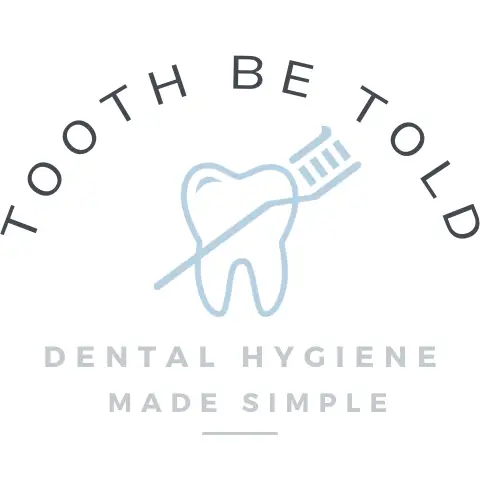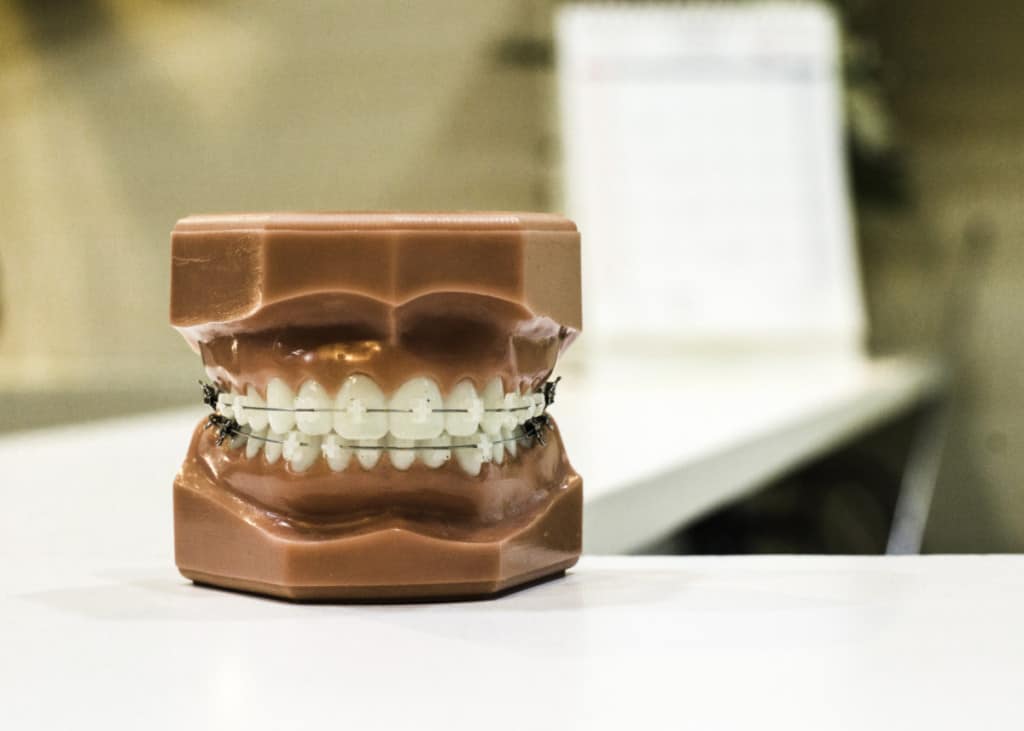
Patients in my dental chair, young and old, asking me about orthodontic treatment, specifically braces, and looking for my opinion if they should go ahead with the treatment. I get asked by my older patients if they are too old for braces or if there is an age limit to getting them.
It is never too late to get braces! Orthodontic treatment with braces is most commonly done in adolescents and children due to the growth period of the jaw. Getting braces at an older age can fix long-lasting dental problems and increase the longevity of your teeth.
In this post, I go over the reasons why it is not too late to get braces and achieve your dream smile! Although there is no age limit, there are limiting factors to getting braces at an older age. If you are thinking of getting braces, I explain everything that I would tell my own patients, right down to how to pick an orthodontist!
It is not too late for braces, there is no age limit!
The most common time for orthodontic treatment is from childhood to adolescence because the jaw is in the growth period. This allows the orthodontist to make structural changes in the jaw with orthodontics without having to do surgery.
Having braces at an older age is becoming much more popular because;
- more people are being educated on the importance of good oral health and proper alignment of teeth
- braces have become more affordable
- faster treatment duration
- technological advancements of braces and Invisalign
- people are keeping their natural teeth for longer due to proper dental care and oral hygiene
- less bulky braces and clear braces
Teeth that are straight and in alignment are easier to clean and keep healthy. Also, the biting forces will be dispersed more evenly when the teeth bite together properly, reducing wear, cracks, and broken teeth.
Read Now: Cosmetic or Medical? Reasons Why Dental Braces Are Needed
Sometimes people can go many years into adulthood with a straight smile, but because teeth will continue to move throughout life, braces are only needed in adulthood.
A bit farther down in this post, I go over the benefits of having braces, so If you are still contemplating if you want to go through orthodontic treatment, make sure to read them!
So whatever age you are, and your mouth is healthy enough to have orthodontic treatment, go for it. The sooner you start, the sooner you will finish with your dream smile!
For myself, having braces to straighten my smile for both function and cosmetic reasons changed my life and increased my confidence tenfold, and that journey is the reason I became a dental hygienist.
Limiting factors due to age
As we age, gum health, bone loss, and tooth loss can affect the length, availability and success of orthodontic treatment. As well, healing time diminishes as we get older, so this can extend treatment time to allow for more time for proper healing of the bone.
Teeth move through the jaw bone by breaking down bone in the direction the tooth is moving and building bone where the tooth was coming from. You need a good base and strong, healthy bone around the teeth to have orthodontic treatment.
Read now: What To Do if Teeth Shift Back After Braces? How To Fix
If teeth are moved too quickly, it can cause bone loss and bone defects. And if you are an adult who has periodontal disease, irreversible damage can occur.
Please, before consulting an orthodontist, see a dentist and dental hygienist. Having an exam before starting orthodontic treatment is necessary to assess the overall health of the mouth to see if there is active gum disease, decay (cavities) and any other concerns that could hinder orthodontic treatments.
What is the best age to get braces?
The best age to have braces and orthodontic treatment is between the ages of 8 and 14. Some children start earlier at the age of six. Any time is a good time to have orthodontic treatment, as it will improve overall health, wellness, and confidence.
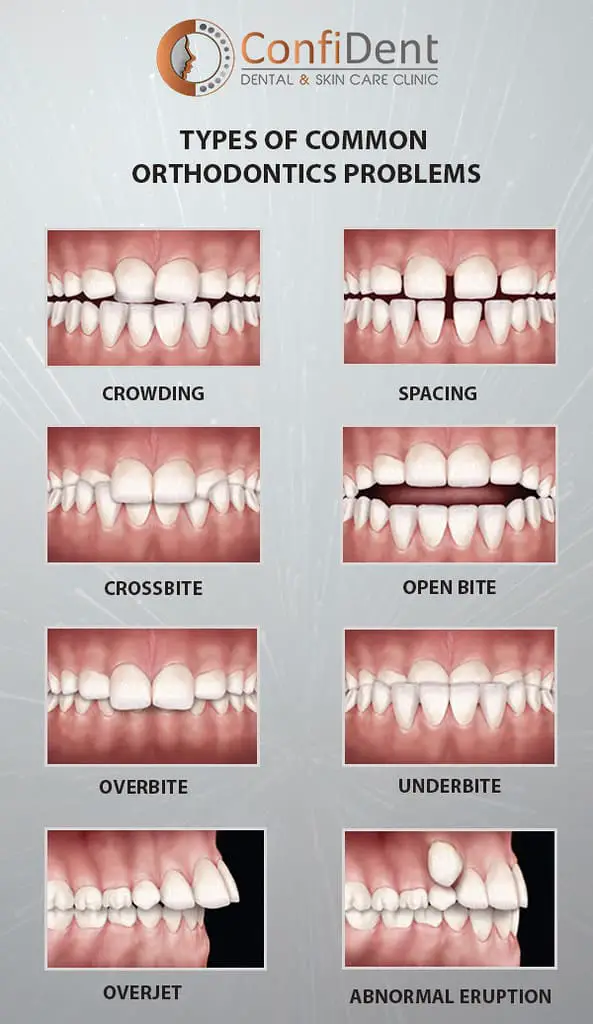
Benefits of braces
Braces are not just for looks but function and the overall health of the mouth. Teeth that are crooked and misaligned, or if your bite is off, can contribute to gum disease, decay, and excessive wear of the teeth.
When speaking to my patients, I discuss the following benefits of following through with orthodontic treatment.
- Improved confidence
- This was my biggest takeaway from having orthodontic treatment. When people compliment your smile, it is the best feeling!
- Reduce wear and tear on teeth (grinding and clenching)
- When the bite is not even, there are excessive forces on some teeth and not enough on others. This can lead to bone loss, tooth wear, chipping, cracking and breaking teeth.
- Helps with speech impairments
- The angle/position of teeth and the spaces between them affect how the tongue helps to make sounds and if you can close your lips all the way together to make certain sounds.
- Easier home oral hygiene care
- When the teeth are perfectly aligned, it is easier to floss and brush.
- Reduced gum disease
- Due to easier oral care and a more even biting plane, the risk of gum disease is diminished.
- Reduced cavities
- Due to easier oral care, the risk of cavities decreases.
- Reduced trauma to soft tissues
- Biting on cheeks, lips, and tongue. Over time repeated trauma can cause fibroma to form, along with other chronic irritations.
- Improved chewing
- When the teeth are all aligned properly, there are fewer spaces, less crowding, and more of an even biting surface in the mouth, making chewing food easier.
- Reduced headaches and muscle pain
- Overcrowded and misaligned teeth can cause overuse of some of the muscles in our face and jaw leading to pain and discomfort.
Read Now: Perfect Bite: How Teeth Should Line up and Come Together
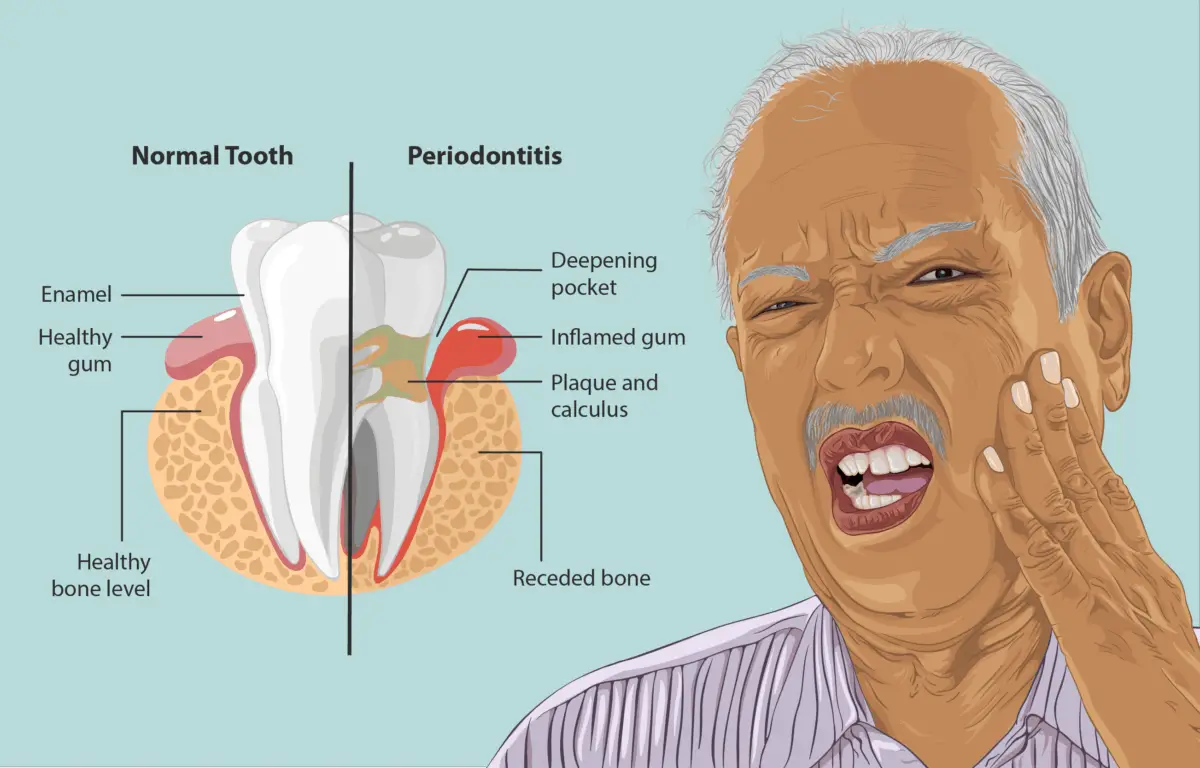
Reasons to not get braces
There are not too many reasons to not get braces. Poor oral hygiene and oral health status are the reasons why you shouldn’t get braces. Having orthodontic treatment could cause irreversible damage to your mouth, including both your gum and teeth health.
Poor oral hygiene routines
If oral hygiene routines are poor, and teeth are not being taken care of, orthodontic treatment should not commence.
I know orthodontists who took off patient’s braces early on in the treatment because the patient’s oral hygiene was so poor. By not removing the braces, irreversible issues including gum disease and decay could occur.
But if oral hygiene is improved and stuck with for the duration of the treatment (and hopefully well beyond that), orthodontic treatment can be done.
Poor oral health status
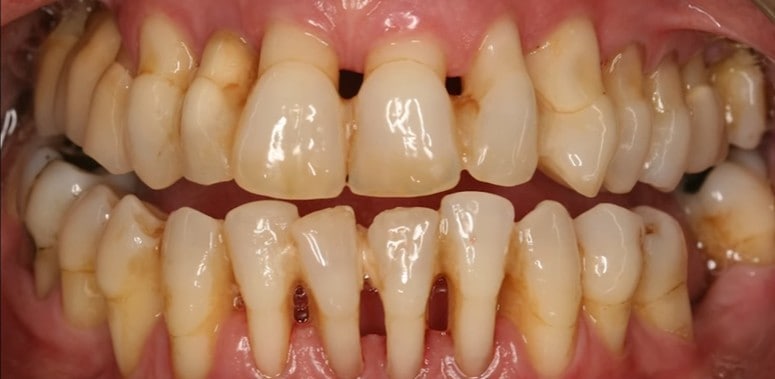
Gum disease
If gum disease is present and not under control, going through orthodontics is a very bad idea. Gum disease affects the entire mouth and body. It needs to be controlled before going ahead with braces.
If a patient does have gum disease, they will also need to be followed by a periodontist (a specialized dentist who strictly deals with preventing, diagnosing, and treating gum disease).
There is a risk that if you already have gum disease, having orthodontic treatment may cause further bone loss that could result in loose teeth and loss of teeth.
Medical conditions
Some medical conditions can trigger bone loss, and certain medications to treat medical conditions can trigger bone loss. Osteoporosis, for example, causes diminished bone density and mass.
People who take bisphosphonates are more prone to bone loss by increasing the chance of triggering the bone to die off.
Picking the right orthodontist
I went to 3 orthodontists before I actually stuck with one. Choosing the right professional is key. Their goals need to be in line with yours, as well as doing it safely, not too quickly and ethically.
The first orthodontist I ever went to wanted to pull out my canine teeth (the sharp pointy ones at the corner of our smile). Extracting canines is an outdated practice that can cause issues later in life.
The canines are the longest root in the mouth, think of them as an anchor, and if you need partial dentures, the canines are used to anchor the denture in place. This is just one example of why it is important to find the right practitioner.
Ask for a referral from your dental office, or you could even read reviews online or ask friends and family for a good recommendation.
I hope this post has helped you understand more about getting orthodontic treatment, and remember, you deserve your dream smile, no matter your age.
Keep smiling,
Holly 🙂
